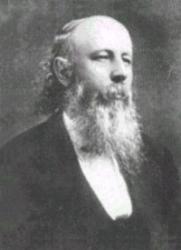Therapeutics more superficial and more uncertain than that which rests solely on the easy computation of fatal and favorable cases, to say nothing of the pernicious practical consequence of such a manner of proceeding when one could not beforehand exclude any kind of attempt. Plus
“It is really deplorable that geometricians have sometimes honored with some kind of encouragement, such a profoundly irrational aberration by making vain and puerile efforts to determine by their illusory theories of chances, the number of cases sufficient to make these statistical results legitimate.” (1 Course de Philosophie Positive, par Mo Auguste Comte, tom. iii., pp. 418- 420).
And with a direct reference to the method of obtaining a correct system of Therapeutics by experimenting with individual medicines and individual cases of diseases, and forming of the results statistical tables from which deductions are to be drawn by the numerical method, the highest modern authority in philosophy, John Stuart Mill, speaks in his System of Logic. (1 Harper’s edition, 1848, p. 260). “Let the subject of inquiry be the conditions of health and disease in the human body; or (for greater simplicity) the conditions of recovery from a given disease; and in order to narrow the question still more, let it be limited, in the first instance, to this one inquiry: Is or is not a particular medicament (Mercury, for instance) a remedy for that disease?
“The experimental method would simply administer Mercury in as many cases as possible, nothing the age, sex, temperament and other peculiarities of bodily constitution, the particular form and variety of the disease, the particular stage of its progress, etc., remarking in which of these cases it produced a salutary effect, and with what circumstances it was on those occasions combined.
“When we devise an experiment to ascertain the effect of a given agent, there are certain precautions which we never, if we can help it, omit. In the first place, we introduce the agent into the midst of a set of circumstances, which we have exactly ascertained. It need hardly be remarked how far this condition if from being realized in any case connected with the phenomena of life; how far we are from knowing what are all the circumstances which pre-exist in any instance in which Mercury is administered to a living being. This difficulty, however, though insuperable in most cases, may not be so in all; there are sometimes (though I should think never in Physiology) concurrences of many causes in which we yet know accurately what the causes are. But when we have got rid of this obstacle, we encounter another still more serious. In other cases, when we intend to try an experiment, we do not reckon it enough that there be no circumstances in the case, the presence of which is unknown to us. We require also that none of the circumstances which we do know of shall have effects susceptible of being confounded with those of the agent whose properties we wish to study. We take the utmost pains to exclude all causes capable of composition with the given cause; or if forced to let in any such causes we take care to make them such that we can compute and allow for their influence, so that the effect of the given cause may, after the subduction of those other effects, be apparent as a residual phenomenon.
“These precautions are inapplicable to such cases as we are now considering. The Mercury of our experiment being tried with an unknown multitude (or let it be a known multitude) of other influencing circumstances, the mere fact of their being influencing circumstances, the mere fact of their being influencing circumstances implies that they disguise the effect of the Mercury, and preclude us from knowing whether it has any effect or no.
“In phenomena so complicated it is questionable if two cases similar in all respects but one ever occurred; and were they to occur we could not possibly know that they were so exactly similar.
“Anything like a scientific use of the method of experiment in these complicated cases is therefore out of the question. We can in the most favourable cases, only discover, by a succession of trails, that a certain cause is very often followed by a certain effects”.

